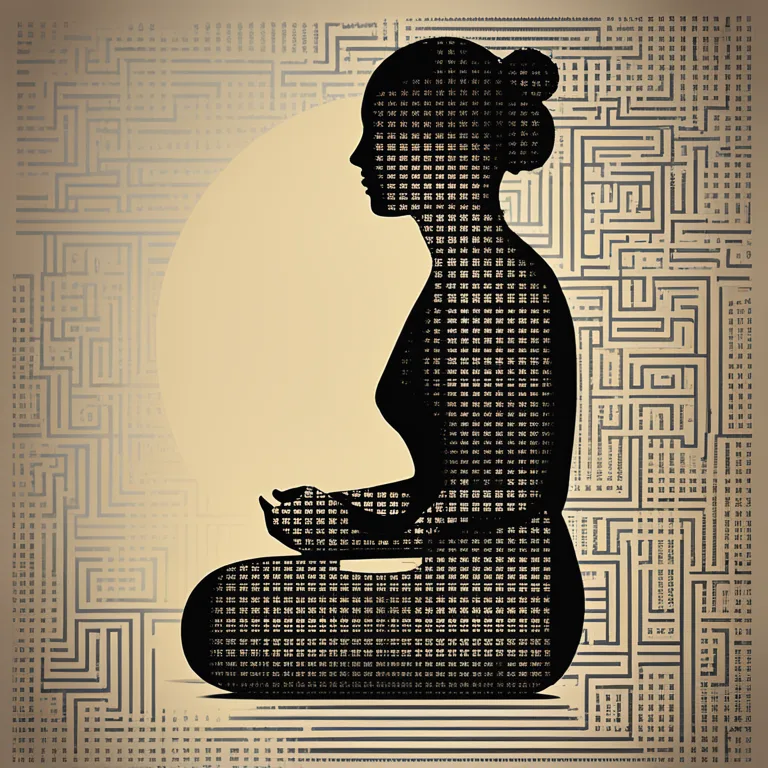
Meditative Practices to Ease Depression
Discover effective meditation techniques that can provide relief and support for individuals dealing with depression.
article by Hina Kurosawa
Introduction to Meditation and Mental Health
Meditation, a practice that dates back thousands of years, has gained widespread recognition for its mental health benefits, particularly when addressing depression. Amidst the accelerated pace and increased stress of modern life, individuals around the globe are turning to this ancient practice. More than a simple stress-relief tool, meditative techniques have been scientifically shown to alter brain structure and function, leading to improved mood and well-being. In this article, we will explore several meditation methods that can help manage depression and foster a healthier state of mind.

Understanding Depression's Impact on Life
Depression is a common but serious mood disorder that affects how a person feels, thinks, and handles daily activities. Characterized by persistent feelings of sadness, loss of interest, and a variety of emotional and physical problems, depression can diminish one’s quality of life significantly. Although treatment options including medication and therapy are prevalent, complementary practices like meditation are becoming an integral part of self-care for many suffering from this condition.

Mindfulness Meditation for Awareness
Mindfulness meditation is a practice of becoming fully aware of the present moment without judgment. By focusing on the breath or bodily sensations, practitioners learn to observe their thoughts and feelings as they arise and pass without becoming entangled in them. Such presence can reduce rumination and negative thought patterns associated with depression. Moreover, recent studies suggest mindfulness could potentially decrease the risk of depression relapse, making it a powerful preventative tool.

Loving-Kindness Meditation to Cultivate Compassion
Loving-kindness meditation, also known as Metta Bhavana, is a practice designed to cultivate feelings of love and kindness towards oneself and others. Depression can often be accompanied by harsh self-criticism and a negative self-image. Through loving-kindness meditation, individuals can nurture a sense of self-compassion and connection with others, which can serve as antidotes to depressive symptoms and improve overall emotional well-being.

Body Scan Meditation for Tension Release
The body scan technique involves slowly focusing attention on different parts of the body, from the toes to the top of the head. This practice can reveal areas of tension or discomfort, which are often physical manifestations of mental stress. By consciously relaxing these areas, individuals may experience a reduction in the physical symptoms of depression. In conjunction with traditional treatments, body scan meditation can contribute to a holistic approach to managing depression.
Transcendental Meditation for Inner Peace
Transcendental Meditation (TM) is a simple, natural method involving the silent repetition of a mantra. TM promotes a state of relaxed awareness, providing a profound sense of calm and inner peace. Studies have suggested that practicing TM can lead to reduced cortisol levels, which are often elevated in individuals with depression. This practice, especially when integrated into daily routines, offers a refuge from the chaotic thought patterns that can fuel depressive episodes.
Yoga and Meditation for Mind-Body Harmonization
Yoga, often intertwined with meditative practices, combines physical postures, breathing exercises, and meditation to enhance mind-body connection. Various forms of yoga have been associated with improvements in depressive symptoms, likely due to the combination of movement, breath control, and mindfulness. As yoga encourages a non-judgmental awareness of the present, it can be particularly beneficial for those with depression seeking a more active form of meditation.
Adopting the Right Technique
Choosing the right meditation technique is a personal journey. What works for one individual may not resonate with another. It's essential to explore various forms of meditation and pay attention to how each affects your mental state. Keep in mind the importance of patience and consistency, as the benefits of meditation often accumulate over time. For those with severe depression, it's recommended to consult with healthcare providers before starting any new meditative practice.
Published: 12/20/2023
Modified: 12/20/2023
More predictions
Come back here soon to learn more about yourself and your future


Meditation: Unveiling The Optimal Practice Duration
Discover how much time to dedicate to mindfulness meditation for personal growth and well-being.


Advanced Techniques For Deepening Meditation
Discover the serene path to mindfulness meditation with this simple, step-by-step guide focused on fostering tranquility and self-awareness in your daily life.


Mindful Sketching: Blending Art With Presence
Delve into the serene practice of meditation and mindfulness drawing to foster inner peace and creative expression.